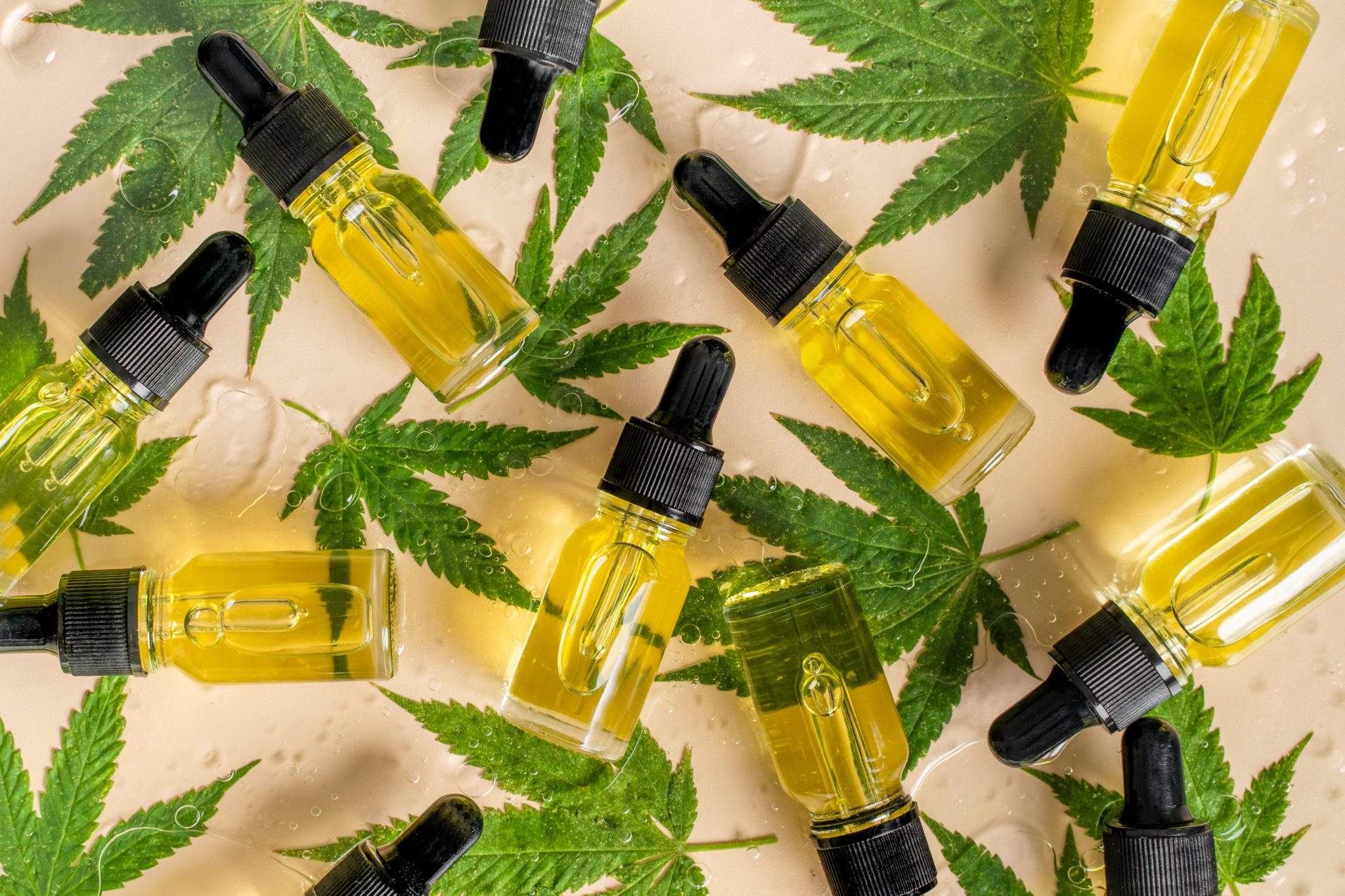When you’re on the hunt to buy CBD, it doesn’t take long to realize that so many choices are at your fingertips. But where do you start, and how do you decide which product is right for you? Here, we’re going to take a look at the differences between broad-spectrum and full-spectrum CBD, as well as a few other terms that you might see.
The Entourage Effect
To better understand the significance of what we’re going to explain below, first, you’ll want to understand the entourage effect. Your body’s endocannabinoid system (ECS) ensures that all systems are stable. When you suffer an injury or illness, the ECS releases natural cannabinoids that help your tissues heal, stimulate your immune system, and fight pain.
Phytocannabinoids (plant-based cannabinoids) such as CBD and THC also interact with this system. The cannabis plant contains multiple cannabinoids, as well as terpenes, flavonoids, and other beneficial compounds. Cannabinoids work to enhance one another in the body, so when CBD is combined with terpenes, for example, the effect is more significant than if just CBD were to be taken. To quote Aristotle, “The whole is greater than the sum of its parts,” and cannabis is a fantastic example of this!
What is Full-Spectrum CBD?
Now, let’s look at full-spectrum CBD. You might be familiar with the farm bill of 2018, which legalized industrial hemp. As long as the hemp has less than 0.3% THC content, it is considered legal in the United States and can be transported across state lines and traded as a commodity in the US market. Hemp farmers take on a pretty significant risk because if a crop is tested and found to have more than this amount, it must be destroyed, meaning millions of dollars lost.
Full-spectrum CBD products are considered such because they have a very small amount of THC, but not enough to create a high effect. With any cannabis purchase, check the label to determine the THC content, and then take it a step further and look at the certificate of analysis, or CoA. This third-party lab testing is incredibly important because it tests the amount of cannabinoids and terpenes in a product. More than that, it attests to the fact that there are no toxins such as mold, fertilizers, and pesticides present.
What is Broad-Spectrum CBD?
Broad-spectrum CBD, like full-spectrum, also contains all the beneficial cannabinoids and terpenes from the cannabis plant. The most significant difference, however, is that the THC is removed from the plant during the extraction process, creating a THC-free CBD product. Broad-spectrum CBD promotes the entourage effect, and similar to its full-spectrum counterpart, it can also contain other cannabinoids such as CBG, CBN, and CBC.
Other Products You Might See
While full- and broad-spectrum products are ideal in the world of CBD, you will most certainly come across two other products: CBD isolate and hemp seed oil. We feel that with the popularity of CBD, it’s crucial for us also to distinguish the differences between these other two products to help you make more informed buying decisions.
CBD Isolate
When full- and broad-spectrum products are manufactured, the extraction process is designed to leave the beneficial cannabinoids in the final product. With CBD isolate, however, everything but cannabidiol is stripped away, leaving only CBD crystals. Some consumers like this product because they can add pure CBD to essential oils, for example. However, some manufacturers sell the isolate on its own or add it to carrier oils. CBD isolate does not produce the entourage effect, and any potential benefits the user experiences will be from CBD alone.
Hemp Seed Oil
You’ve no doubt searched for CBD to buy online, and likely found an Amazon page for a hemp oil product for a great price. Currently, Amazon does not allow for CBD products to be sold on their site, so anything you buy there is most likely a hemp seed product. While hemp seeds do contain many beneficial fatty acids and nutrients, they contain absolutely no cannabinoids.
If your goal is to reap the potential benefits of CBD, then hemp seed oil is not the product for you. That said, you might see hemp seed oil listed as an ingredient in legitimate CBD products. Some companies use hemp seed oil as a carrier oil instead of MCT oil. Again, this is why third-party lab testing is so important—you can ensure that there is actually CBD in the final product.
What About Drug Testing?
We get asked a lot about whether or not CBD is going to show up on a drug test. Full-spectrum CBD does contain THC, and while the amount is minimal, it can build up in the system and become detectable in a drug test. Broad-spectrum CBD doesn’t have any detectable amounts of THC in it, which is why it is favored among people who do anticipate drug testing for employment and other reasons.
All this said, we believe wholeheartedly in erring on the side of caution. Some testing methods aren’t sophisticated enough to tell the difference between THC and CBD, and will only detect the cannabinoids in the blood or urine. This can be true even for THC-free products. For this reason, be sure you check with the laws in your state, as well as your human resources department to determine if this could affect your employment.
Final Thoughts
Hopefully, this has provided you with a better understanding of the types of CBD and what to look for when buying CBD products. We recommend being thorough when considering what to buy, and not only checking labels, but lab reports and how the hemp is sourced.
Ripon Naturals carries the full range of CBD products, from tinctures to edibles to skincare products. Shop online or come to our store in Ripon, Wisconsin today!


Leave a Reply